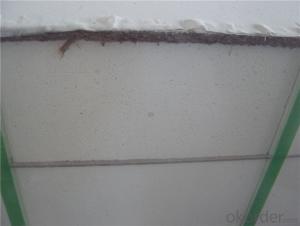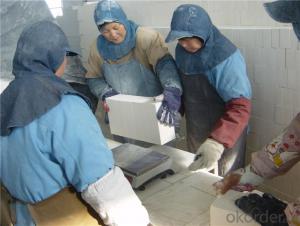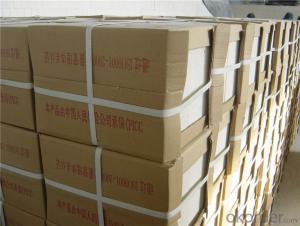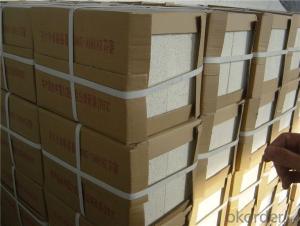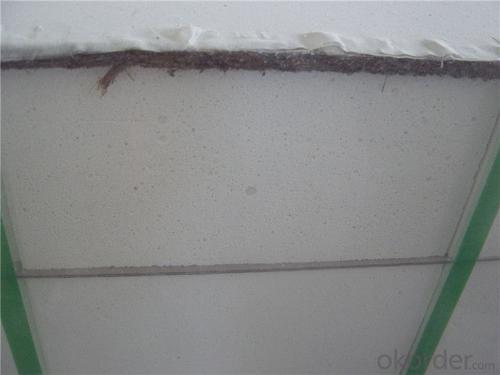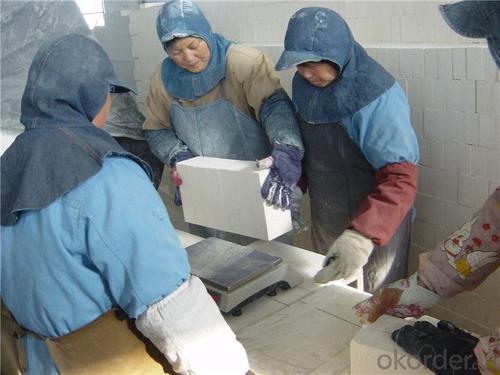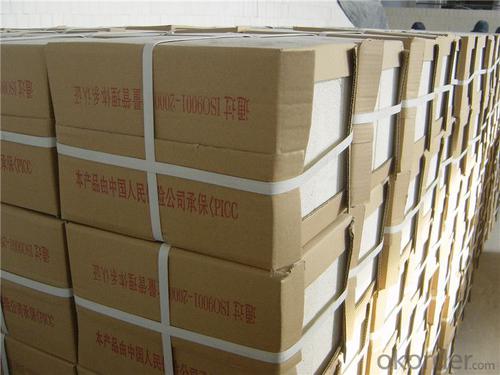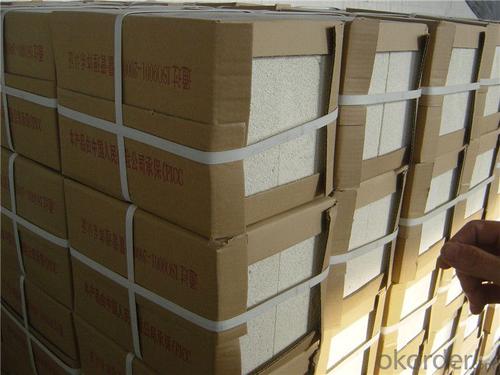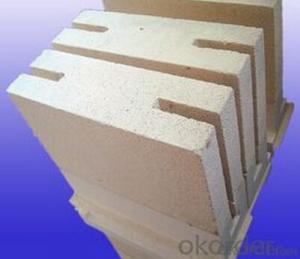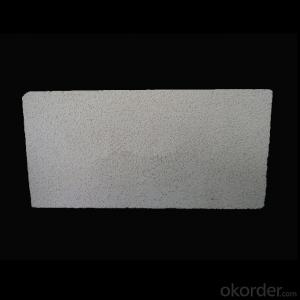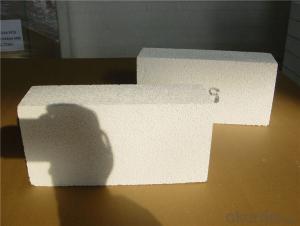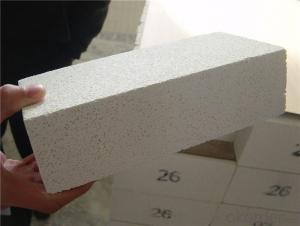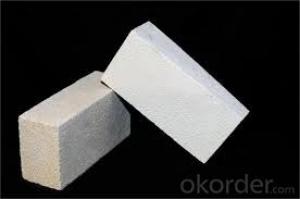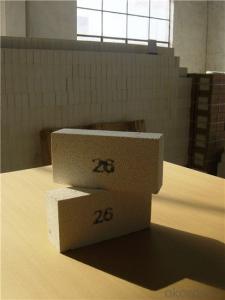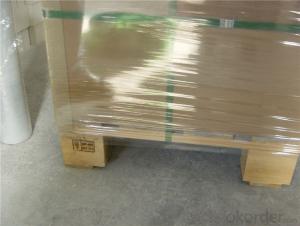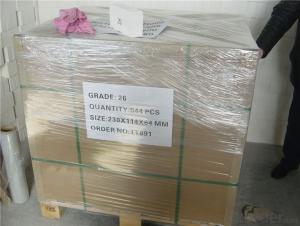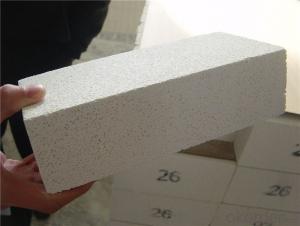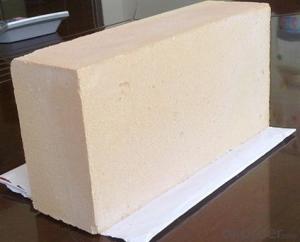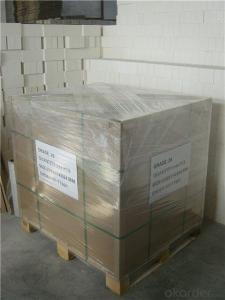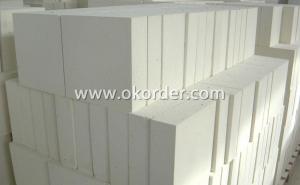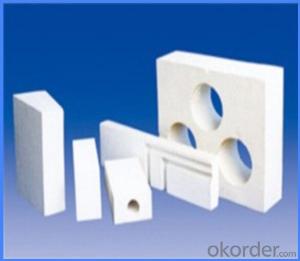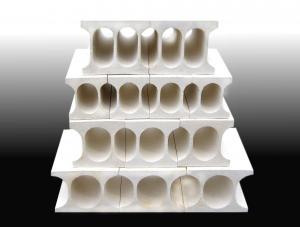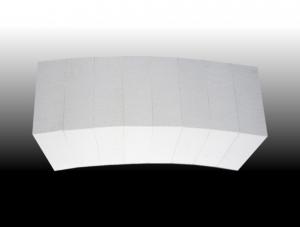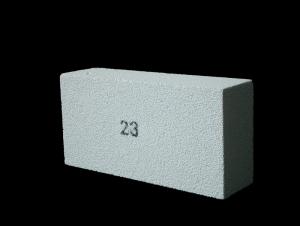Insulating Fire Brick - Furnace Fireproof Insulation Fire Brick/Fire Clay Brick
- Loading Port:
- Shanghai
- Payment Terms:
- TT OR LC
- Min Order Qty:
- 1 m.t.
- Supply Capability:
- 1000 m.t./month
OKorder Service Pledge
OKorder Financial Service
You Might Also Like
Thermal Insulation Fire Clay Brick
Refractory brick is a block of refractory ceramic material used in lining furnaces, kilns, fireboxes, and fireplaces.
We provide high quality Refractory Fire Bricks that are used on wide range in the various industries like Cement, Glass and Steel. Refractory Fire Bricks are provided as per the quantity and specifications required by the customers. We provide an extensive range of Refractory Fire Bricks at reasonable prices that depend upon the quantity ordered.
Application
Insulating Fire Brick are used for the lining of converter, alternating current arc furnace, direct Current arc furnace and the ladle slag line, etc.
Company Advantage
(1)Long Insulating Fire Brick manufacture history: 25 years manufacturer
(2)Advanced equipment
(3)Diversification of production standards: ISO ANSI FEPA JIS ASTM
(4)Flexible payment: T/T L/C D/P D/A
(5)Professional marketing team and after-sale service
Insulating Fire Brick main feature:
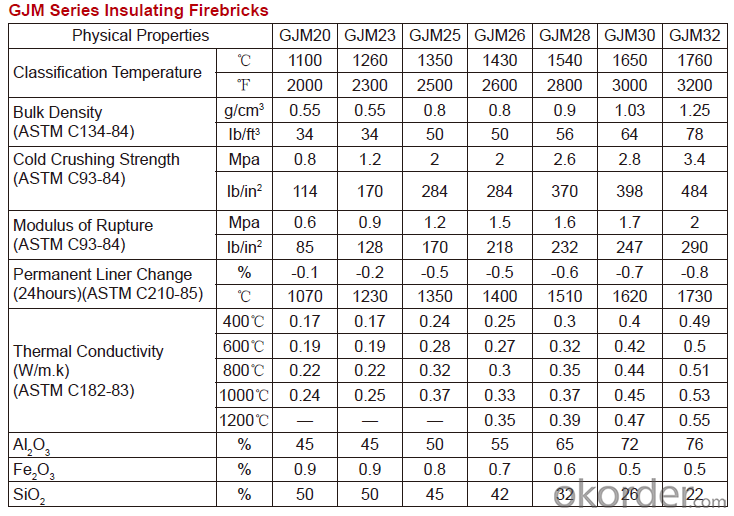
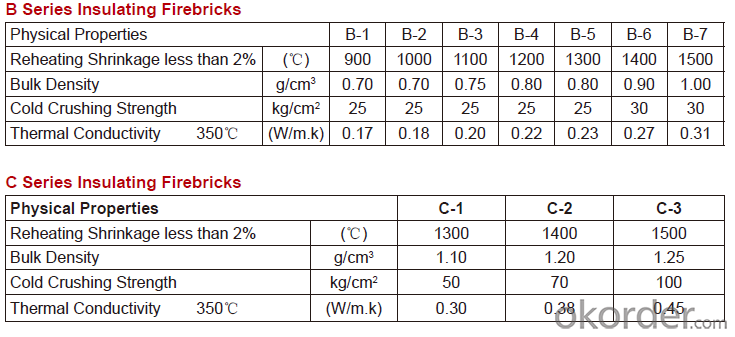
Equipment
1 unit of Ceramic Abrasive (SG Abrasive) pilot production line
2 units of Compact grain Abrasive pilot production lines
1 unit of high-end coated abrasives (abrasive cloth) production line
2 units of Boron Carbide production lines
3 large flexible crushing and sieving lines for grit production lines
6 units of 5000KVA-10000KVA dumping type electric arc furnaces for Brown Fused Alumina fusion
Q1 What’s the transport method?
A1 FCL delivery goods with wooden pallet or wooden case by sea; If LCL delivery, must with wooden case; Sometimes need open top, flat rack or bulk cargo.
Q2 What’s the required payment term?
A2 Generally 30% TT as the prepayment, 70% TT before delivery. If need, 100% Irrevocable Letter of Credit or negotiation.
Q3 Which country are our products exported to?
A3 Apart from entire Chinese market, the US, Russia, Japan, Korea, Australia and some Southeast Asian Nations.
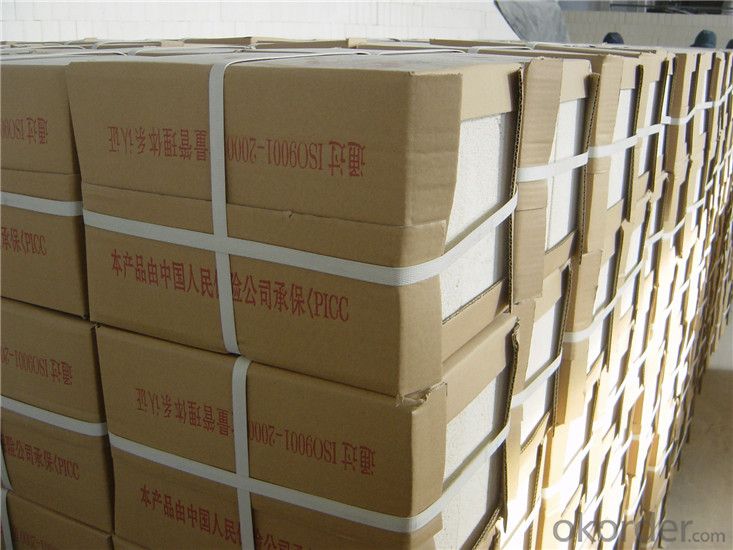
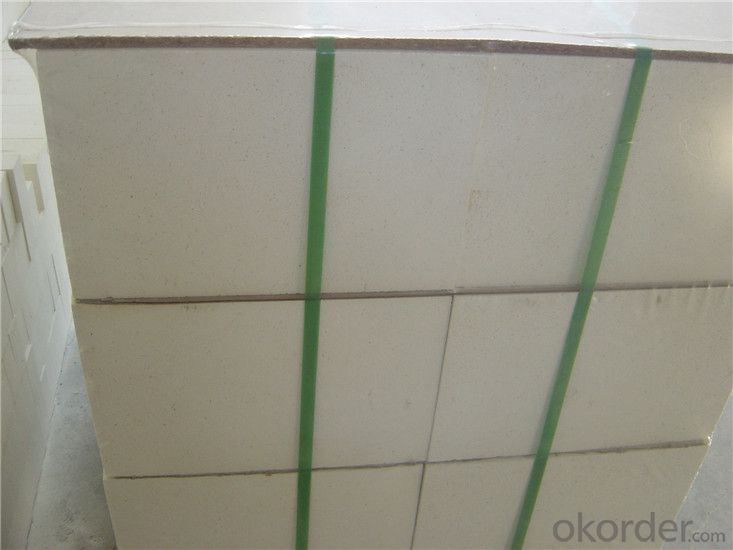
- Q: Can insulating fire bricks be cut to custom sizes?
- Indeed, custom sizes can be achieved when cutting insulating fire bricks. These bricks are commonly crafted from lightweight materials like ceramic fibers or lightweight aggregates, facilitating their relative ease of cutting. A range of tools, including saws, knives, and specialized cutting equipment, can be utilized to achieve this. However, it is crucial to prioritize proper safety measures and employ suitable tools and techniques to attain a precise and flawless cut. Furthermore, consulting the manufacturer's instructions or seeking expert guidance is recommended to ensure that the cutting procedure does not compromise the structural integrity or thermal characteristics of the insulating fire bricks.
- Q: Are insulating fire bricks resistant to abrasion or erosion?
- Insulating fire bricks lack resistance to abrasion or erosion in general. Despite their exceptional heat insulation properties, they are typically constructed from materials that are not intended for enduring high levels of deterioration. Insulating fire bricks are commonly employed in scenarios that do not involve substantial mechanical forces or abrasive substances. If worries about abrasion or erosion arise, it may be more appropriate to consider an alternative refractory material or lining for the particular application.
- Q: Can insulating fire bricks be used in high-temperature filters?
- Yes, insulating fire bricks can be used in high-temperature filters. Insulating fire bricks are designed to withstand extremely high temperatures, typically up to 3000°F (1650°C). They have excellent thermal insulation properties, low thermal conductivity, and high resistance to thermal shock, making them ideal for applications that involve high temperatures. In high-temperature filters, insulating fire bricks can be used to form the structure of the filter, ensuring that it can withstand the intense heat generated. These bricks can be arranged in a way that allows for efficient filtration of gases or liquids while maintaining their structural integrity at high temperatures. The insulating properties of these bricks also help to minimize heat loss and maximize energy efficiency. Furthermore, insulating fire bricks are often chemically inert and have good resistance to corrosive substances, making them suitable for use in various industrial processes that involve the filtration of aggressive or hazardous materials at high temperatures. Overall, the use of insulating fire bricks in high-temperature filters provides a reliable and durable solution for filtering applications that require resistance to extreme temperatures.
- Q: Can insulating fire bricks be used in copper smelting furnaces?
- Yes, insulating fire bricks can be used in copper smelting furnaces. These bricks are designed to withstand high temperatures and provide excellent insulation, making them suitable for use in copper smelting processes where heat retention and efficiency are important.
- Q: Are insulating fire bricks suitable for insulation in steam boilers?
- Yes, insulating fire bricks are suitable for insulation in steam boilers. They are designed to withstand high temperatures and provide excellent thermal insulation, making them ideal for use in steam boilers to minimize heat loss and improve energy efficiency.
- Q: Are insulating fire bricks suitable for use in carbon black furnaces?
- Yes, insulating fire bricks are suitable for use in carbon black furnaces. Insulating fire bricks are made from refractory materials that have excellent insulation properties, which makes them ideal for high-temperature applications such as carbon black furnaces. Carbon black furnaces operate at extremely high temperatures, typically above 1,000 degrees Celsius, and the use of insulating fire bricks helps to reduce heat loss and improve energy efficiency. These bricks also have good thermal shock resistance, which is crucial for the cyclic heating and cooling that occurs in the furnace. Additionally, insulating fire bricks have low thermal conductivity, which helps to maintain a stable temperature inside the furnace and prevent excessive heat loss. Overall, insulating fire bricks are a reliable and effective choice for lining carbon black furnaces.
- Q: Can insulating fire bricks be used for insulation in foundries?
- Yes, insulating fire bricks can be used for insulation in foundries. Insulating fire bricks are specifically designed to have high thermal resistance and low thermal conductivity, making them ideal for applications where insulation is required. In foundries, where high temperatures are involved, insulating fire bricks can be used to line the walls, floors, and roofs to reduce heat loss and improve energy efficiency. They can also help to maintain a uniform temperature throughout the foundry, ensuring consistent heat distribution and preventing heat loss to the surroundings. Additionally, insulating fire bricks are lightweight and easy to install, making them a practical choice for insulation in foundries.
- Q: Can insulating fire bricks be cut or shaped to fit different spaces?
- Yes, insulating fire bricks can be cut or shaped to fit different spaces. They are typically made from a soft, lightweight material that can be easily cut or shaped using common tools like saws or knives. This flexibility allows for customization and adaptation to various spaces and applications.
- Q: Are insulating fire bricks resistant to erosion from flowing gases or liquids?
- Generally, insulating fire bricks exhibit resistance to erosion caused by flowing gases or liquids. These bricks are designed to possess excellent thermal insulation properties and the ability to withstand high temperatures, making them suitable for a wide range of industrial uses. The bricks are constructed from lightweight refractory materials with low porosity, which aids in minimizing the infiltration of gases and liquids. Moreover, insulating fire bricks often exhibit chemical inertness, further enhancing their erosion resistance. However, it is crucial to acknowledge that the erosion resistance of these bricks may vary depending on factors such as composition, manufacturing process, and the characteristics of the flowing gases or liquids. Therefore, it is advisable to consult the manufacturer or a qualified expert to assess the suitability of insulating fire bricks for a specific application.
- Q: Can insulating fire bricks be used in fertilizer plants?
- Insulating fire bricks have the capability to be utilized in fertilizer plants, as they possess exceptional thermal insulation properties, high resistance to heat, and low thermal conductivity. These characteristics render them appropriate for various industrial applications, including those found in fertilizer plants. Within fertilizer plants, there are often procedures that involve elevated temperatures, such as the creation of ammonia or the transformation of raw materials into fertilizers. In these processes, insulating fire bricks can be employed to line the walls, floors, and roofs of the furnaces, kilns, and reactors. The thermal insulation provided by insulating fire bricks assists in minimizing heat loss, improving energy efficiency, and maintaining a steady temperature inside the processing units. This is of utmost importance for controlling chemical reactions and ensuring the plant's optimal performance. Furthermore, insulating fire bricks possess a high resistance to chemical attack, which is crucial in fertilizer plants where corrosive substances are frequently handled. They can endure the harsh chemicals and gases present in the production environment without deteriorating or compromising their insulating capabilities. Moreover, insulating fire bricks are lightweight, making them easier to handle and install in various areas of the plant. This can result in cost savings during construction or maintenance activities. In conclusion, insulating fire bricks are a suitable choice for fertilizer plants due to their thermal insulation properties, high resistance to heat, chemical resistance, and lightweight nature. They can contribute to the efficient and safe operation of the plant while providing long-lasting performance in the demanding conditions of the fertilizer industry.
Send your message to us
Insulating Fire Brick - Furnace Fireproof Insulation Fire Brick/Fire Clay Brick
- Loading Port:
- Shanghai
- Payment Terms:
- TT OR LC
- Min Order Qty:
- 1 m.t.
- Supply Capability:
- 1000 m.t./month
OKorder Service Pledge
OKorder Financial Service
Similar products
Hot products
Hot Searches
Related keywords
